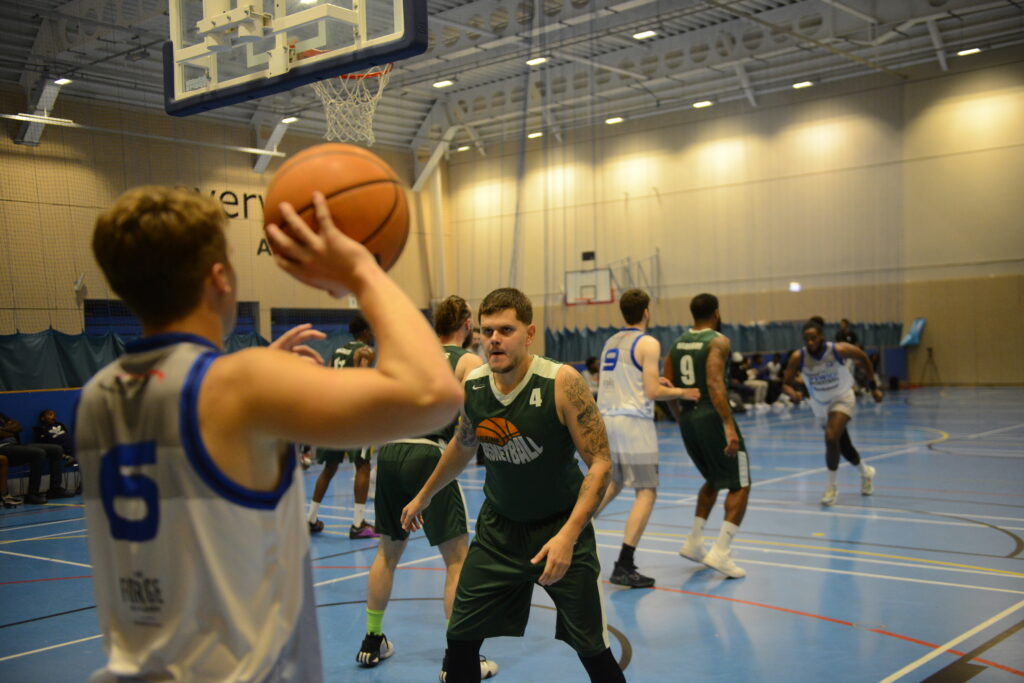
Benefits of Healthy Eating in Basketball (and in Life!)
- Optimized Performance: A balanced diet rich in essential nutrients fuels your body for optimal performance on the court. By consuming the right foods, you can enhance energy levels, improve endurance, and maximize strength and agility during training sessions and games.
- Faster Recovery: Proper nutrition plays a crucial role in supporting muscle recovery and reducing the risk of injury. Nutrient-dense foods help repair muscle tissues, replenish glycogen stores, and promote faster recovery between workouts, allowing you to bounce back quickly and maintain peak performance throughout the season.
- Enhanced Focus and Mental Clarity: Good nutrition isn’t just about fueling your body; it also nourishes your brain. Eating a balanced diet can enhance cognitive function, improve focus, and sharpen mental clarity, helping you make quick decisions and execute plays with precision on the court.
- Immune System Support: A healthy diet rich in vitamins, minerals, and antioxidants strengthens your immune system, reducing the likelihood of illness and allowing you to stay on top of your game all season long. By prioritizing nutritious foods, you can boost your body’s natural defenses and minimize the risk of missing valuable playing time due to sickness.
- Long-Term Health Benefits: Developing good dietary habits early in your basketball career sets the foundation for lifelong health and wellness. By choosing nutrient-rich foods over processed snacks and sugary drinks, you can reduce the risk of chronic diseases such as obesity, diabetes, and heart disease, ensuring you can continue enjoying the game for years to come.
- Improved Body Composition: A well-balanced diet combined with regular exercise can help maintain a healthy body weight and optimize body composition. By fueling your body with the right nutrients and staying hydrated, you can support muscle growth, reduce body fat, and achieve your performance goals more effectively.
- Positive Recovery: Nutrition is vital not only during training and competition but also during recovery periods. Consuming a combination of carbohydrates and protein after workouts can replenish energy stores, repair muscle tissue, and promote recovery, allowing you to bounce back stronger and ready for the next challenge.
- Consistent Energy Levels: Proper nutrition provides a steady source of energy throughout the day, helping you avoid fatigue and maintain consistent performance levels on and off the court. By eating balanced meals and snacks at regular intervals, you can sustain your energy levels and avoid the highs and lows associated with poor dietary choices.
Which Foods Should Be On Your Plate – For The Optimal Athlete
- Carbohydrates: Carbohydrates are the primary source of energy for athletes, especially during intense physical activity. Opt for complex carbohydrates such as whole grains, fruits, vegetables, and legumes. These provide sustained energy release and help maintain blood sugar levels. Examples include brown rice, quinoa, sweet potatoes, oats, whole wheat pasta, and fruits like bananas and berries.
- Protein: Protein is essential for muscle repair, growth, and recovery. Include lean sources of protein in your meals, such as chicken, turkey, fish, lean beef, tofu, tempeh, legumes, eggs, and dairy products like Greek yogurt and cottage cheese. Aim to include protein in every meal to support muscle maintenance and repair.
- Healthy Fats: Healthy fats are important for overall health and can provide a concentrated source of energy. Incorporate sources of unsaturated fats such as avocados, nuts, seeds, olive oil, and fatty fish like salmon and trout. These fats help support heart health, reduce inflammation, and aid in nutrient absorption.
- Vegetables and Fruits: Load up your plate with a variety of colorful vegetables and fruits to provide essential vitamins, minerals, and antioxidants. Aim to fill half of your plate with non-starchy vegetables like leafy greens, broccoli, peppers, carrots, and tomatoes. Include fruits as snacks or as part of your meals to satisfy your sweet tooth while providing vitamins and fiber.
- Hydration: Hydration is crucial for optimal performance, so be sure to drink plenty of fluids throughout the day, especially before, during, and after exercise. Water is the best choice for staying hydrated, but you can also include electrolyte-rich beverages like coconut water or sports drinks during prolonged or intense workouts.
- Timing: Pay attention to the timing of your meals and snacks to ensure proper fueling and recovery. Aim to eat a balanced meal containing carbohydrates and protein 2-3 hours before exercise to provide sustained energy. After exercise, consume a combination of carbohydrates and protein within 30 minutes to support muscle recovery and replenish glycogen stores.
- Portion Control: While it’s important to include a variety of nutrient-rich foods on your plate, pay attention to portion sizes to avoid overeating. Use visual cues such as the size of your palm or a deck of cards to gauge appropriate serving sizes for protein, and fill the rest of your plate with vegetables, fruits, and whole grains.
Want to know more about healthy eating? We talk with the youth in the community and their parents to educate on having a balanced diet and overall healthy eating. To book an informal chat. Please contact us by call or text on 07415972224
